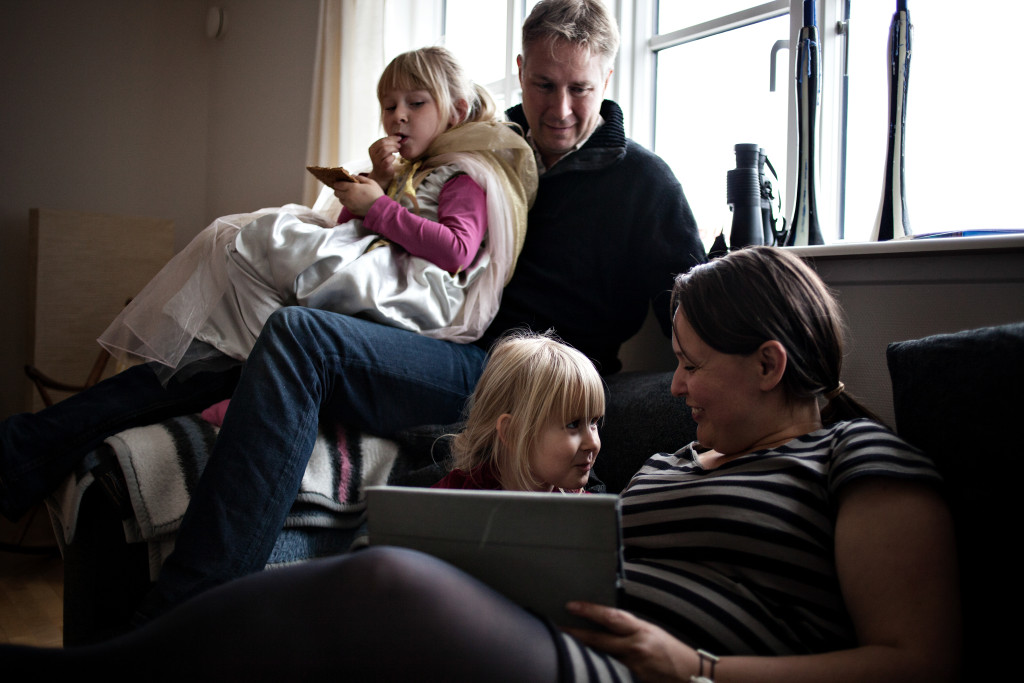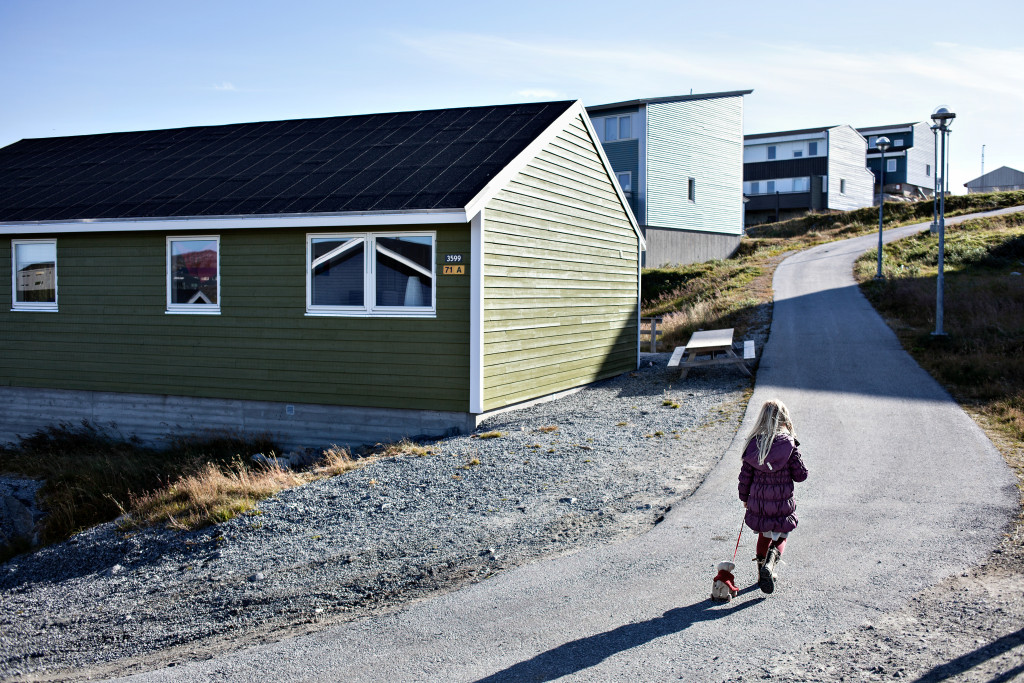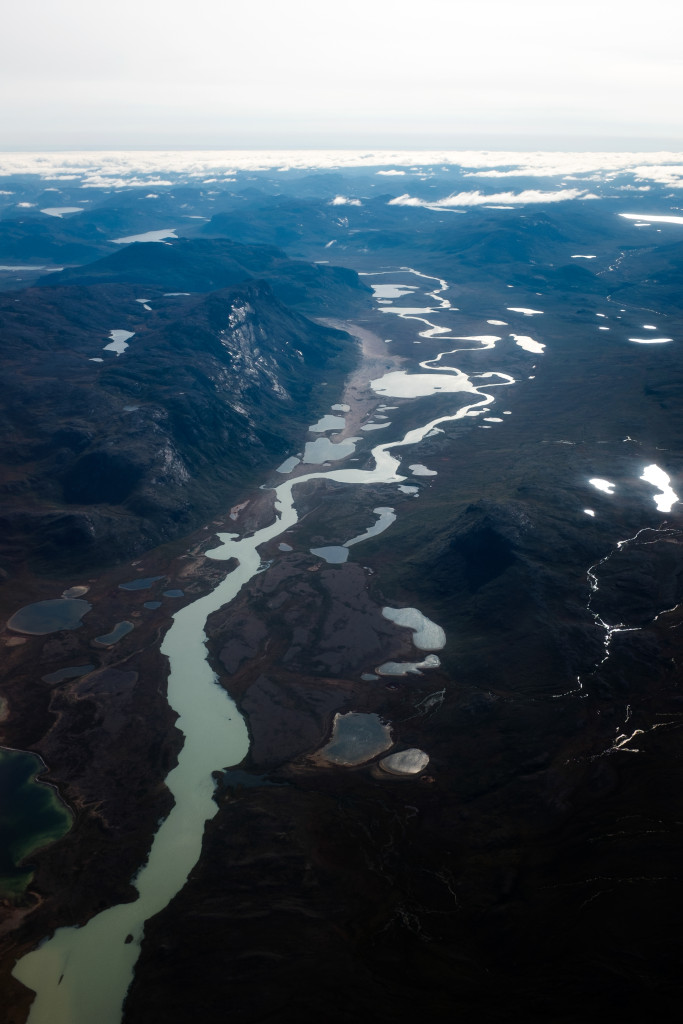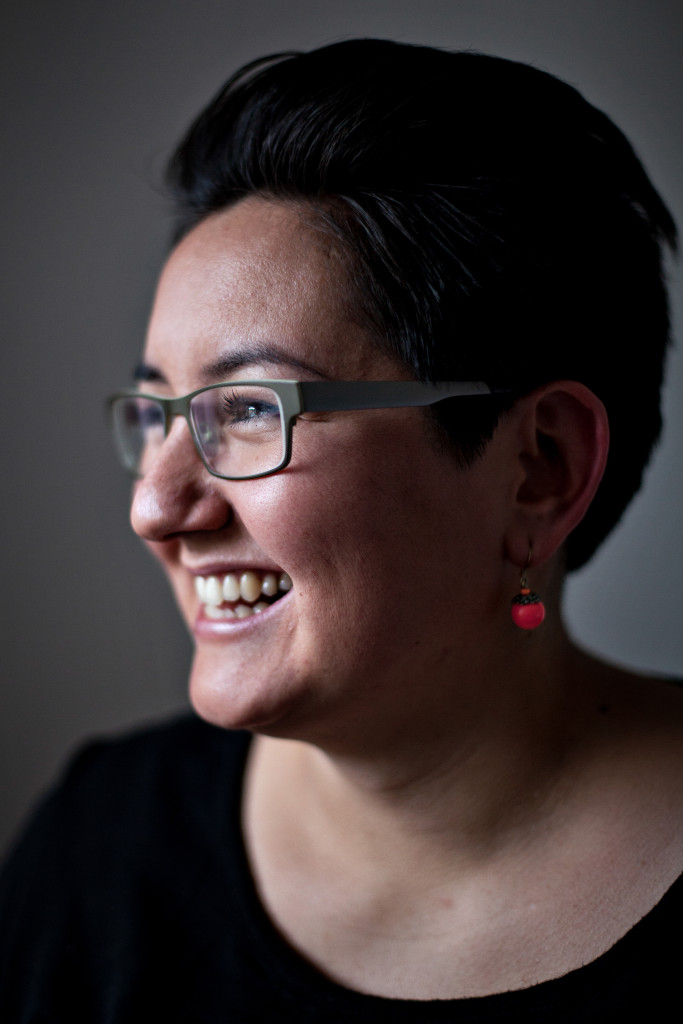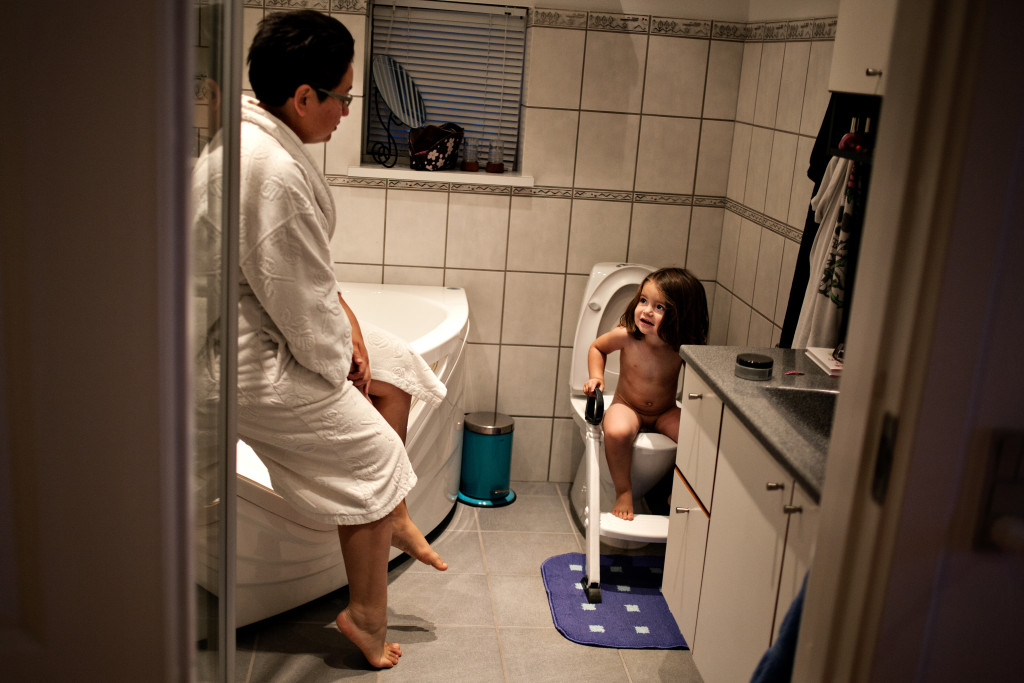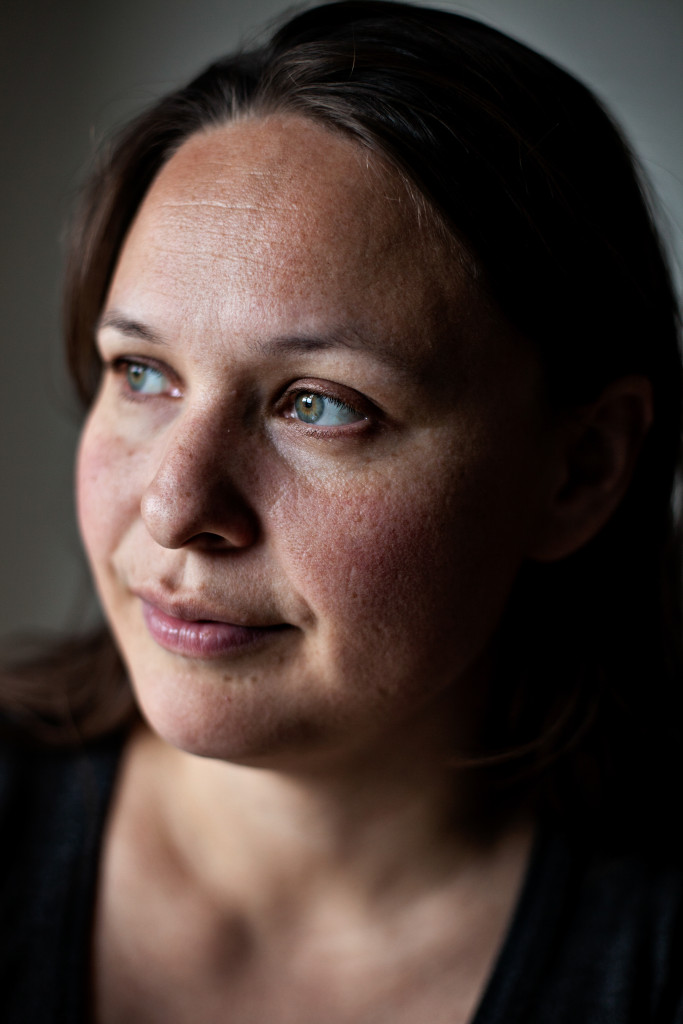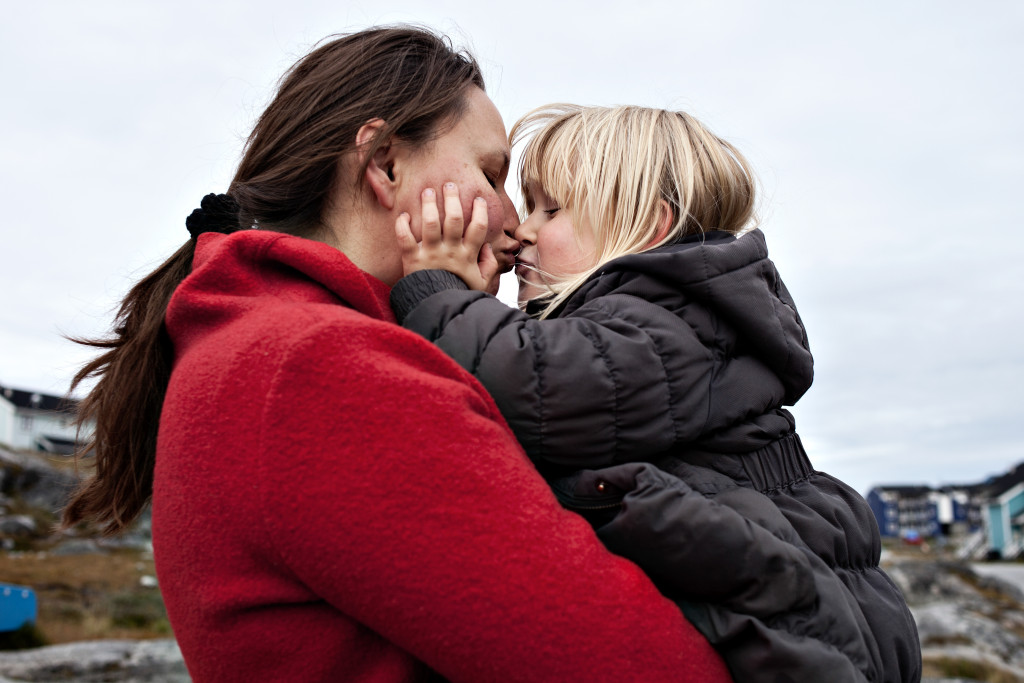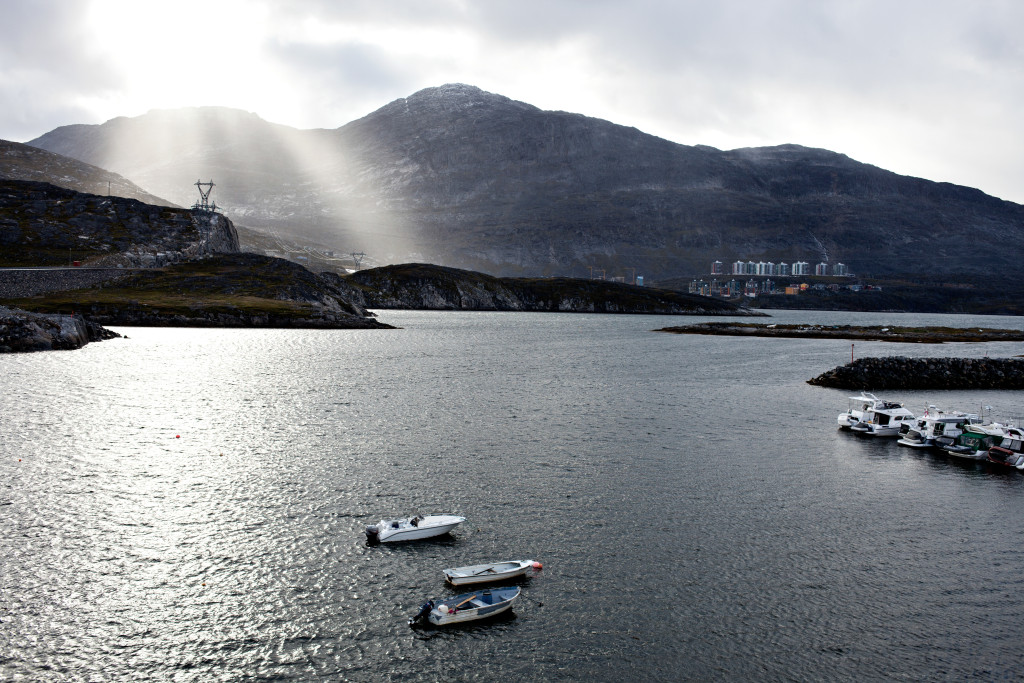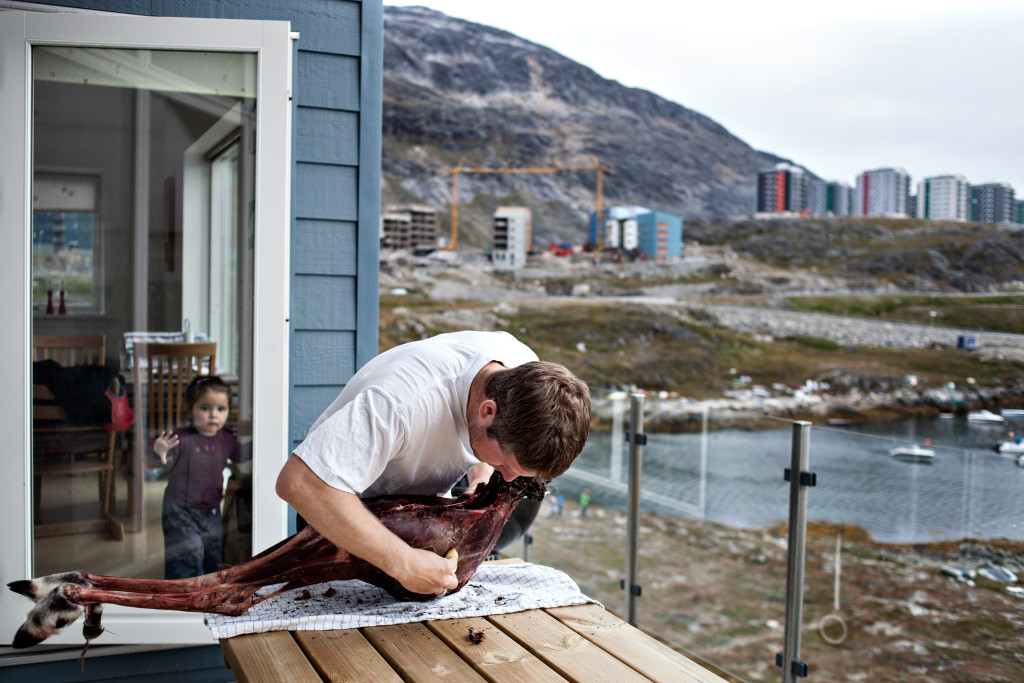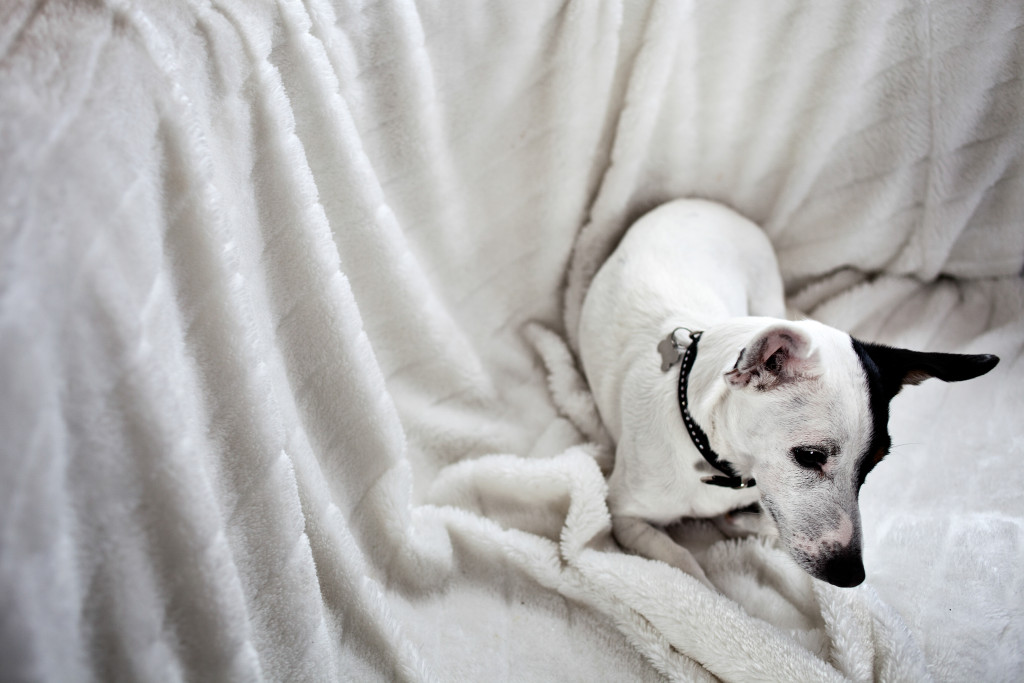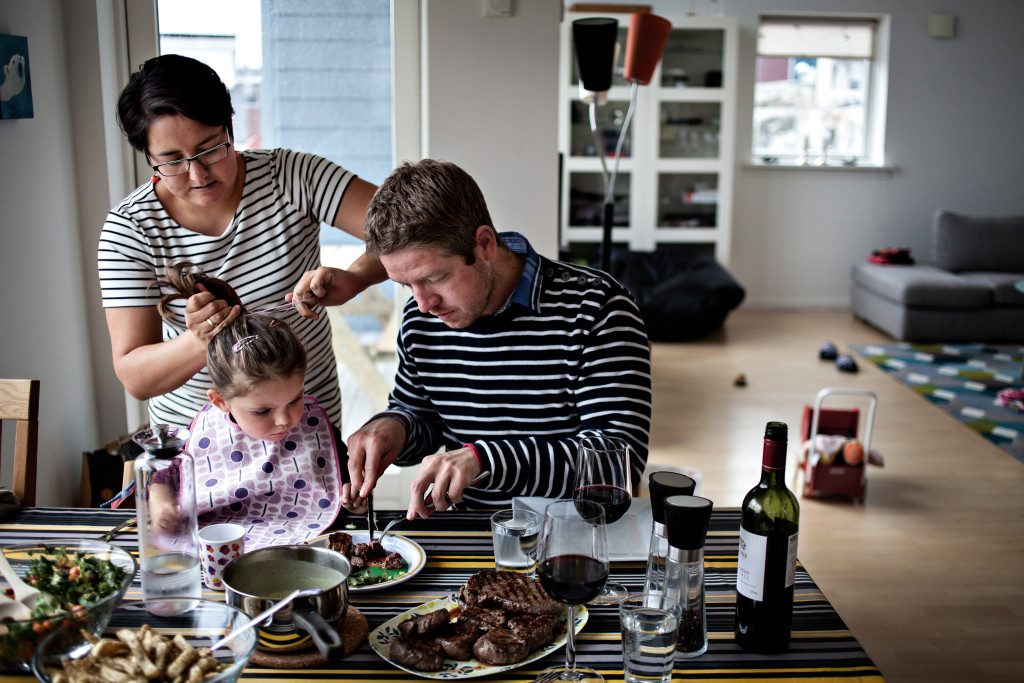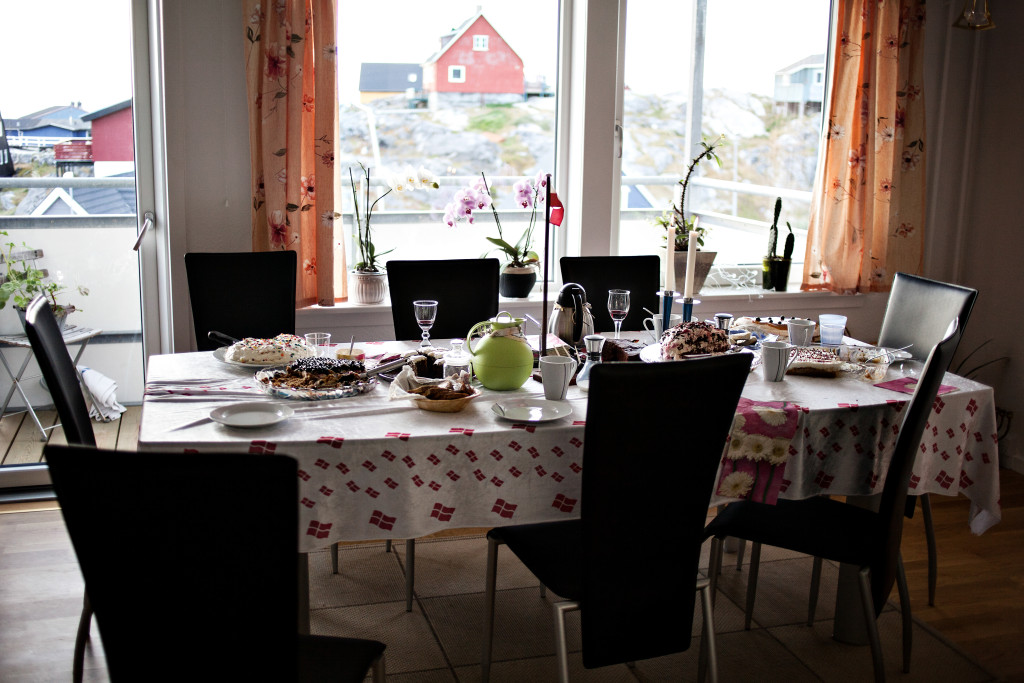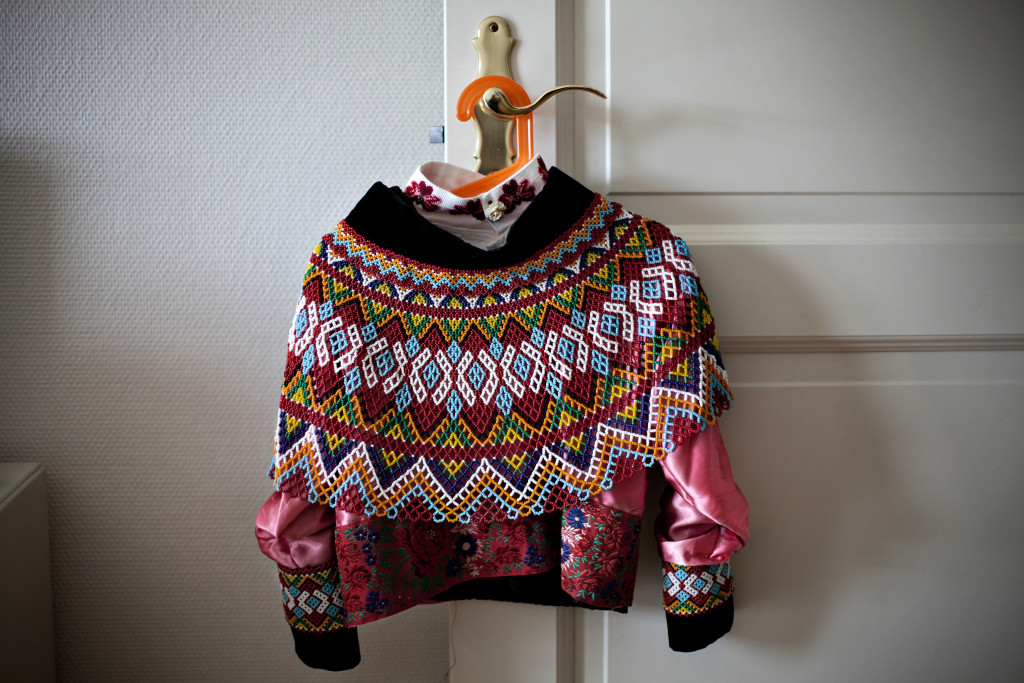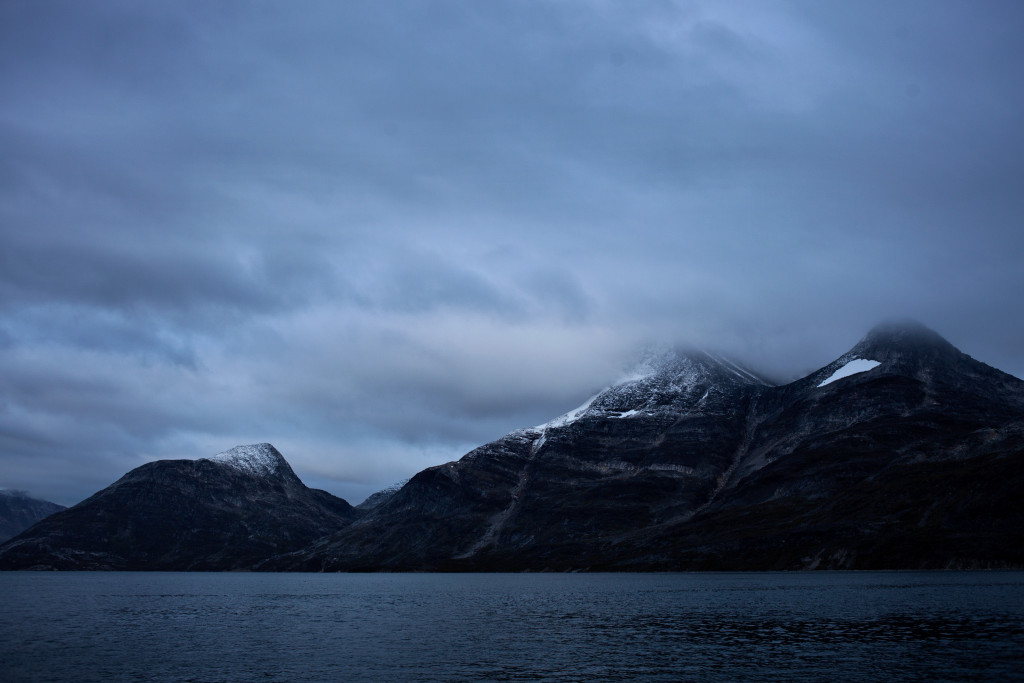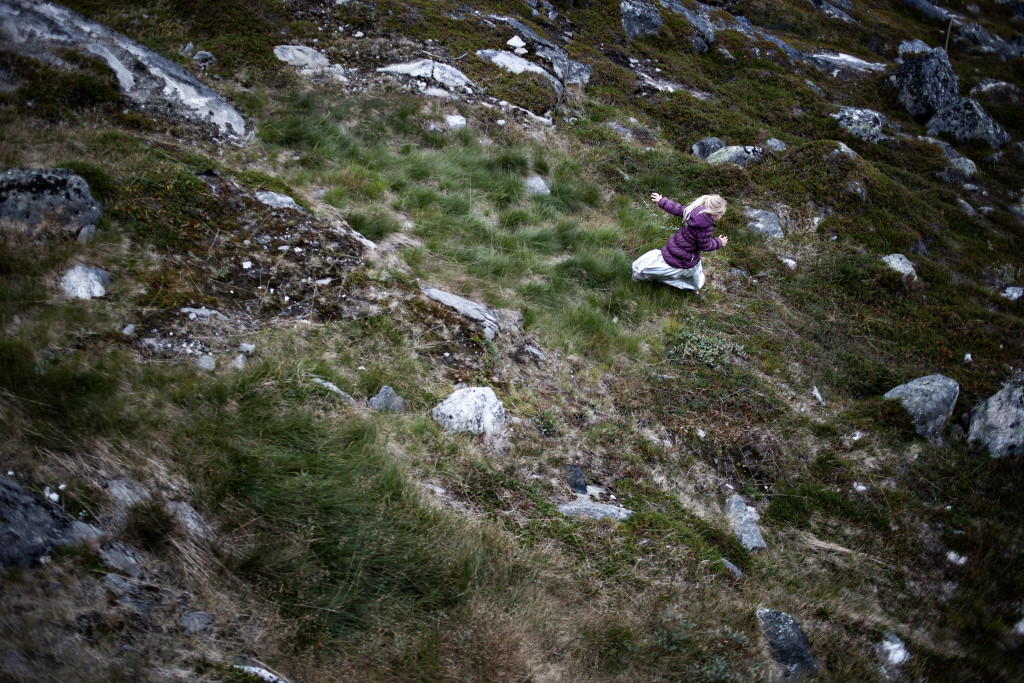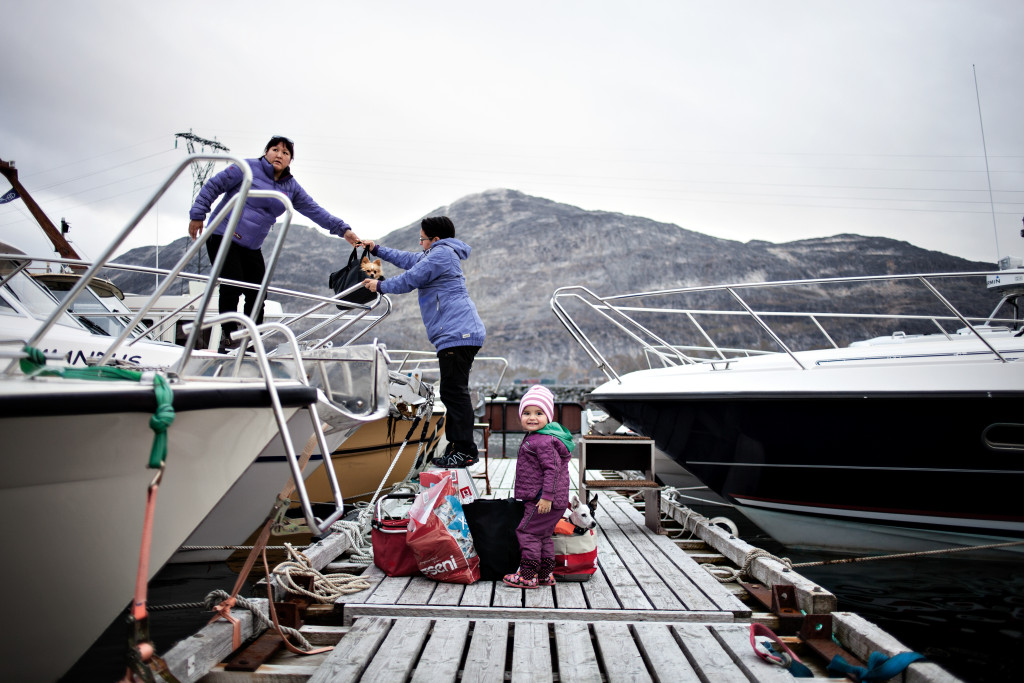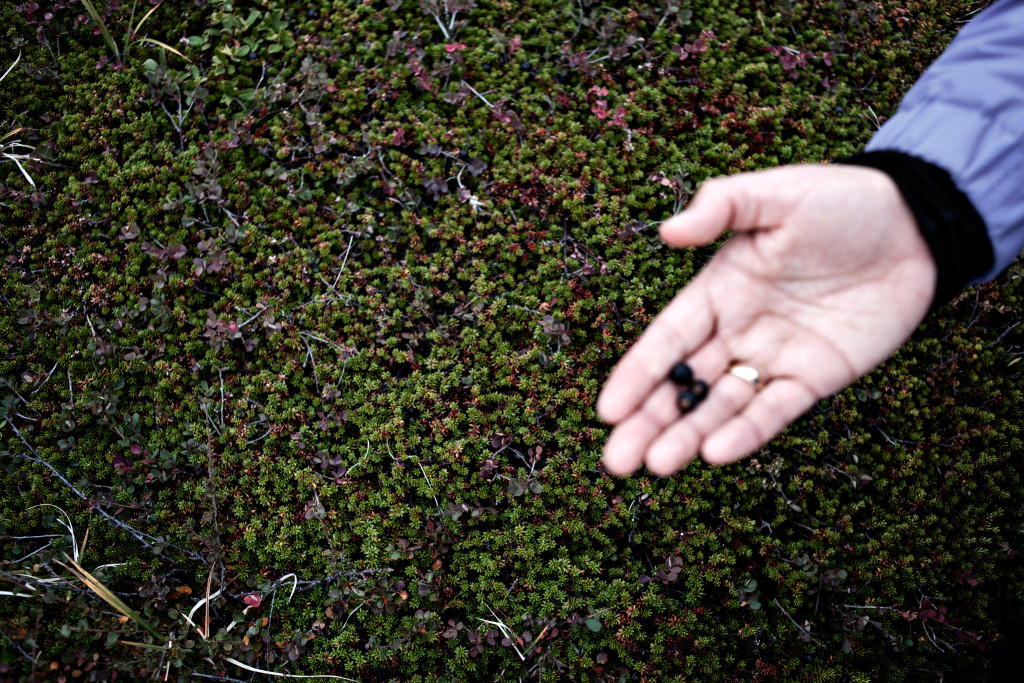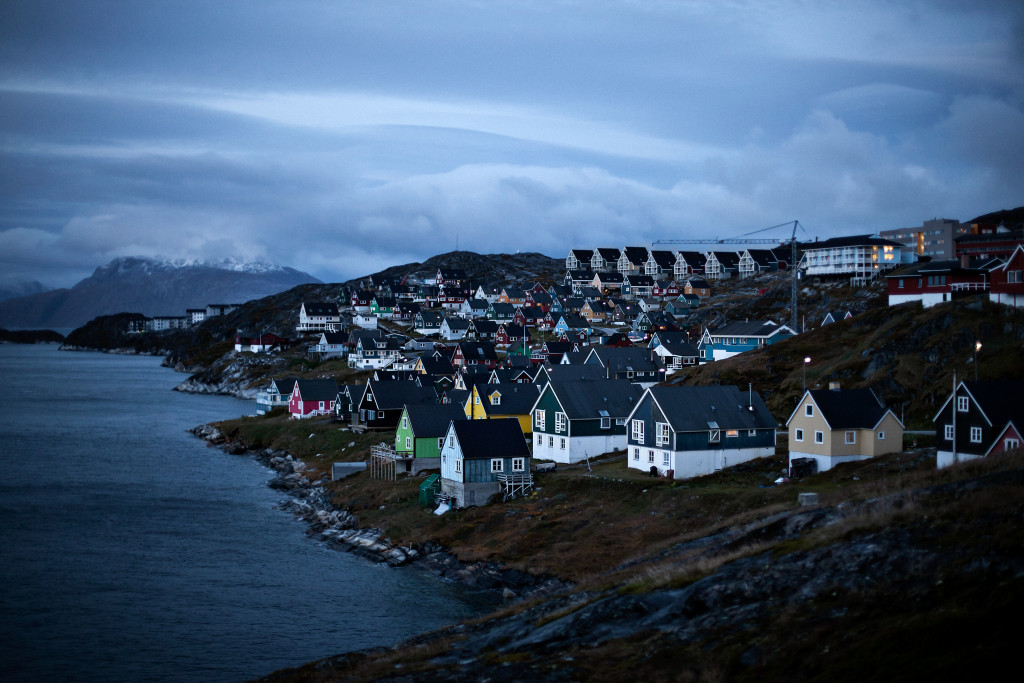Being long away from the grandparents, the family spends a lot of time on Skype. This afternoon they Skyped with aanaa and aataa, Sussi's parents. The girls tell their grandparents about their new life in Nuuk, about school and new friends. They also tell about a sailing trip they took the weekend before, when they had to drag another boat with engine failure back to Nuuk. Ivalu got seasick. Ivalu, Rasmus, Nuka, and Sussi Wille Broge. Sept. 1, 2014.
Sussi Wille Broge's oldest daughter, Ivalu, plays outside their home in Nuusuaq, a suburb to Nuuk. Both Ivalu and her sister Nuka have Greenlandic names. Aug. 30, 2014.
Nuuk, Greenland. Aug. 28, 2014.
Georgine Graversen was born in Nuuk and moved to Denmark with her Danish boyfriend, Nicolaj, now her husband, when she was 18. They lived in Odense for eight years before returning to Nuuk a year ago. To Georgine, living in Denmark changes her view on life and her Greenlandic identity. It made her realize that she has to speak up and do something to help change Greenland into the country she wants it to be: a country with fewer social problems like alcoholism and child abuse, corruption and unemployment. "If I just shut up and do nothing, then nothing will change. I want to show that even though you come from a family with some social issues, you can still be a well-functioning citizen, and you do not have to live in Denmark to do it," she says. Sept. 11, 2014.
One of the main reasons Georgine, left, and Nicolaj moved back to Nuuk was so their daughter Cilja, right, could be closer to her grandparents, who all live here. After becoming a mother, Georgine feels even more for the children she sees wandering the streets alone at night on payment day. A lot of children are left on their own this day, while their parents are busy getting drunk. But Georgine also predicts a change with her own generation. Sept. 9, 2014.
"I want to give it to my children. I want to give them the sailing trips, the kaffemik, the scent of heather, the playing with other children in the streets and on the rocks," Sussi says. She recalls all of these things from her own childhood and remembers how difficult it was when her family moved to Denmark, when she was 8 years old. She felt so different. "In Denmark we were heading toward stress and divorce like so many others, caught up in the mentality of 'wanting more.' By moving here, we have tried to change course," she says. In Greenland everything moves slower, leaving more time to enjoying family and nature. She also feels she had something to give to the Greenlandic society. As the first person in her family to receive an education, she felt like she owed it to them to go back and use it here to help build up their country. She had the opportunity unlike her cousins, who grew up in tiny fishing societies along the coast with children with parents, who did not have big dreams for them. The thought of these families still existing in modern Greenlandic society makes Sussi sad. She hopes to make a difference for them. Sept. 13, 2014.
Before the move to Greenland, Sussi worried about how her girls would handle the big transition and whether anyone would play with them, since they look and talk differently than Greenlandic children. The girls embraced their new life with enthusiasm. "When they come home from school and have learned a new Greenlandic word, I almost weep with pride," Sussi, left, says. Nuka kisses her. Sept. 7, 2014.
In 2003, the first people moved into Qinngorput, a new suburb on the opposite side of the bay from Nuuk. The town is still growing. Many well-functioning families like the Graversen family live here. Former residents of a ghetto-area in central Nuuk called Blok P moved there after the block was demolished in 2012. The rent in Qinngorput is significantly higher than in Blok P, so many residents struggle to make ends meet. Sept. 6, 2014.
Nicolaj, right, cleans a reindeer he shot a few days before while hunting with a group of friends. He and Georgine missed this part of nature while in Denmark. Cilja stands in the doorway. Sept. 2, 2014.
The Graversen family brought their dog, Nanu, with them from Denmark. Sept. 6, 2014.
"I feel so blessed that I've found a husband who knows and loves Greenland like I do. If I had found a man in Denmark, I am not sure I would have been able to convince him to move here. I've been lucky!" Georgine, left, says. Nicolaj, right, cuts up food for Cilja, center. Sept. 2, 2014.
Sussi missed the Greenlandic tradition of kaffemik while living in Denmark. It's an informal way of celebrating events like birthdays. All the guests sit at the table for a short while and leave when the next guest needs a seat, but not until after they taste every single cake on the table. Aug. 28, 2014.
The first day of school is one of the biggest events for children in Greenland. Everyone wears the national costume. Ivalu's aanaa (grandmother) made this colorful beaded shirt for her to wear on her first day in August. Sept. 13, 2014.
Nuuk, Greenland. Sept. 6, 2014.
Ivalu in Nuuk. Sept. 1, 2014.
The Graversen family returns from a sailing trip into the fjords, where they picked crowberries, went fishing, ate freshly prepared fish soup, and warmed up after several hours on the mountainside. From left to right: Kuuna, Georgine, and Cilja. Sept. 6, 2014.
Georgine holds crowberries in Nuuk. Sept. 6, 2014.
Nuuk, Greenland. Dec. 9, 2014.
